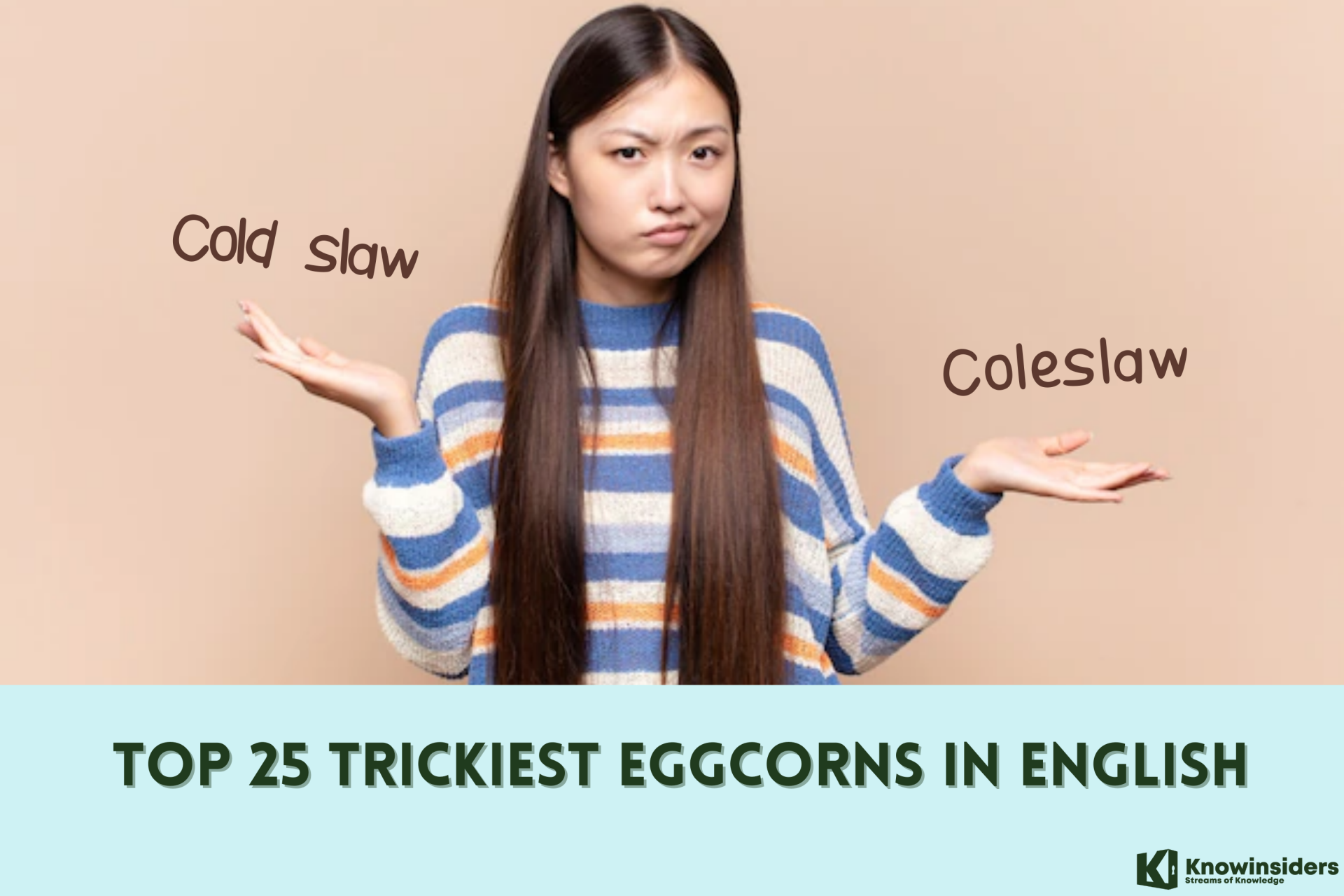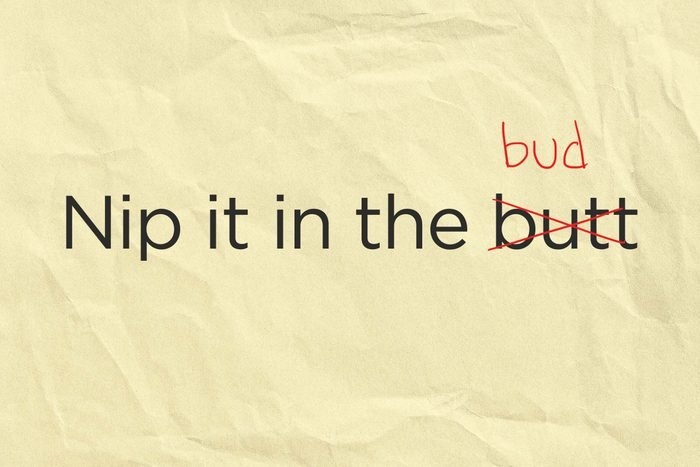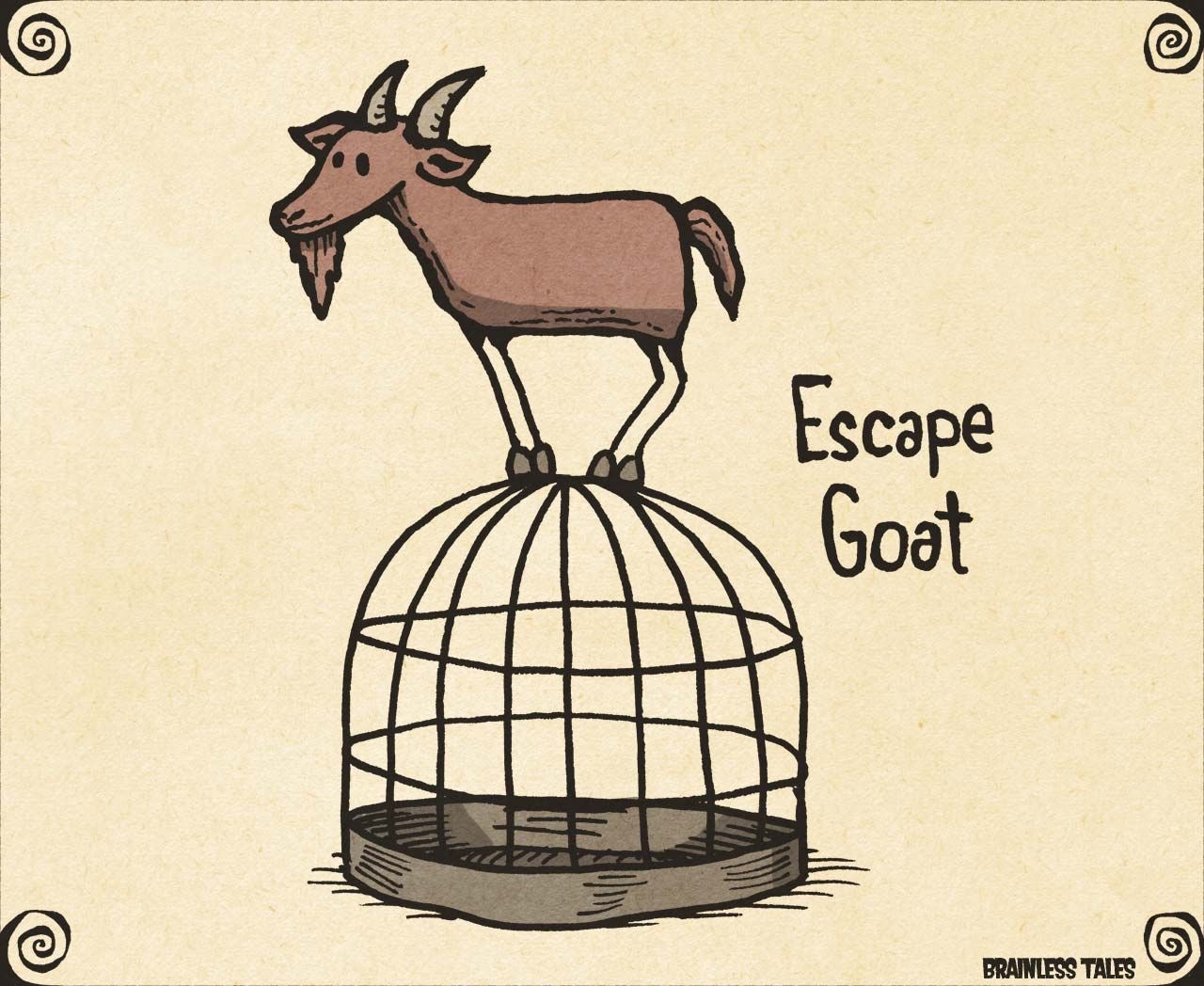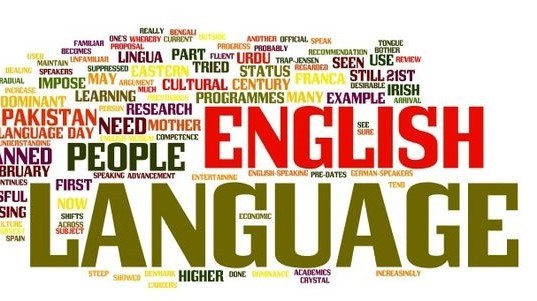Top 25 Trickiest Eggcorns In The English Language
 |
| Top 25 Trickiest Eggcorns In The English Language |
What is the definition of 'eggcorn'?
An eggcorn is a reinterpretation of a misheard phrase. For instance, someone may hear the term “social leper” and be unaware of what a leper is—this causes them to think they must have actually heard a person say “social leopard” instead.
Eggcorns are a special, productive kind of mistake. Sometimes, people mixmatch the letters in a word—or the words in a phrase—but the result still makes sense, that is an eggcorn! In fact, sometimes the messed up version makes even better sense than the original one. An eggcorner might, for instance, use mixmatches instead of mismatches. An eggcorner might assert that something is jar-droppingly good rather than jaw-droppingly. If you’ve ever told someone they’re a “real trooper” or said you’re “chomping at the bit,” then you are an eggcorner, too.
| An eggcorn is a word or phrase that is mistakenly used for another word or phrase because it sounds similar and seems logical or plausible. |
The origin of the word 'eggcorn'
The term eggcorn, coined by British-American linguist Geoff Pullum, hit a milestone this week when Merriam-Webster added it to their unabridged online database. But despite recognition from America’s best-known dictionary, many people continue to mint and recycle eggcorns without ever knowing they’re doing it—or that the action has a name. When corpulent becomes porkulent, that’s an eggcorn. When another think coming becomes another thing coming, that’s an eggcorn. And while fusty rule-followers often treat these as mere idiotic slip-ups, more embracing linguists view them as delightful “reinterpretations” of English.
The name itself is pretty meta, because the word belongs to the category it describes. Back in 2003, some linguists on the blog Language Log were discussing the case of a woman who described an acorn as an “egg corn.” They noted that there was something special about that kind of mishap. After all, acorns are kind of shaped like eggs, and acorns are smaller than eggs just like kernels of corn are. When you think about it, acorns are to trees what eggs are to chickens, and humans for that matter—seeds that spring into new life. It’s not as if she called the “acorn” a “rainstorm” in some classic, just-mixin’-up-two-things-that-sound-alike malapropism.
Top 25 trickiest eggcorns in the English language
Mishearing words and phrases and then reinterpreting them is fairly common. When this linguistic event happens, it’s an eggcorn. Here are ten examples of common eggcorns:
#1. For all intensive purposes — Correct term: for all intents and purposes
One of the most common eggcorns, “for all intensive purposes” doesn’t sound very odd at all—you would assume it means all the purposes that matter.
However, the actual phrase is “for all intents and purposes,” which appears frequently in business or legal writing is a fancy way of saying “in effect” or “practically speaking.”
#2. I 'could' care less — Correct term: I 'couldn't' care less
If you "could" care less, you're admitting there are other, less important things in world, which takes away the sting of your comment. By saying you "couldn't" care less, that means nothing else exists on the planet that matters less you. Major burn.
 |
| Alzheimer’s disease - Old-timer’s disease |
#3. Old-timer’s disease — Correct term: Alzheimer’s disease
Since this neurological condition mainly affects older individuals, some mistakenly believe it’s pronounced “old-timer’s disease.” Despite the similar pronunciation, it’s important to get this one right for reasons of both linguistic correctness and sensitivity.
#4. Doggy-dog world — Correct term: Dog-eat-dog world
The phrase “dog-eat-dog world” refers to a world of brutal competition and unavoidable ferocity. “Doggy-dog world,” the eggcorn alternative, suggests something far more pleasant.
#5. Curve your hunger — Correct term: Curb your hunger
“Curve your hunger,” or “curve your appetite,” is often used as a way to tell someone to suppress their appetite and hold out for meal time. It kind of makes sense—if you picture your hunger growing exponentially on a graph, you might try to make it curve so it stops racing off to infinity.
But the term you’re actually looking for here is “curb” your hunger, which means to contain it. The term gets its origins from the “curbs” that were once used to control unruly horses.
 |
| Photo: Reader's Digest |
#6. Nip it in the 'butt' — Correct term: Nip it in the 'bud'
The expression nip it in the bud means to put a quick end to something. This phrase comes from the garden but has branched out. When a leaf or flower is beginning to form, it's just a little bud, and if you nip it — cut it — then it won't grow. You nip it in the bud. If there's a problem you're just finding out about, nip it in the bud before it becomes a full-blown disaster. If there's a critter problem in your garden, for example, nip it in the bud by putting a cage around your plants. If you start a bad habit, nip it in the bud before it gets bigger.
Stop using Nip it in the 'butt', what means 'bit someone in the backside'.
#7. Deep-seeded — Correct term: Deep-seated
Deep-seated is the correct term. Deep-seated means "firmly established," as in "deep-seated resentment," but it also has an earlier literal meaning of "situated far below the surface." It is from that meaning the figurative use of the word developed. It is sometimes mistaken as deep-seeded.
 |
| Coleslaw is the name of a slide dish, not 'cold slaw' |
#8. Cold slaw — Correct term: Coleslaw
I don’t know about you, but my “cole slaw” is always cold, so I guess the reasoning for this eggcorn makes sense too.
Coleslaw is the correct spelling for the cabbage-based side salad often served alongside barbecue. It is sometimes mistaken as "cold slaw" as it is usually served cold (and early records use this term), but the word derives from the Dutch koolsla, with cole referring to cole crops such as cabbage.
#9. Ex-patriot — Correct term: Expatriate
Given that 'expatriates' leave their home countries, some might think that makes them 'ex-patriots'. Ex-patriot is an eggcorn, which is a misheard word or phrase that retains the meaning of the original, correct word or phrase. Ex-patriot is not a word.
#10. Social leopard Social leper
Here’s another one that sounds much more fabulous than what it actually is. A “social leper” is someone who is either very antisocial, or deliberately avoided by other people.
It has nothing to do with a leopard who likes to party, nor the leopard blouse you wear to go out with your girlfriends on Fridays.
#11. One 'in' the same — Correct term: One 'and' the same
The correct usage is "One and the same". A good dictionary or phrase compilation will confirm this. "One and the same" is used for emphasis, especially when there are seemingly different identities, characters, etc, in question. For example: Johnny Jackson and the blind beggar in that corner are one and the same.
#12. Wet Your Appetite — Correct term:Whet Your Appetite
Whet your appetite is a phrase meaning to "sharpen one's desire for food" whereas wet your whistle refers to having a drink. Here, whistle is a metaphor for the mouth itself and thus wet is the appropriate word. An appetite, on the other hand, cannot be made physically wet, making whet the correct term.
The verbs wet and whet share an identical pronunciation and, as homophones, have inevitably caused some confusion for writers. Oftentimes, they are mistakenly swapped in the expressions "to wet one's whistle" and "to whet one's appetite."
#13. Peak interest — Correct term: Pique my interest
What’s one subject at school that really peaked your interest? Err, actually, whatever the subject, it piqued your interest.
“Peak” makes sense in context, since “peak” literally means to “reach a highest point.” But whoever came up with this phrase chose the word “pique,” which means to stimulate, as in one’s interest or curiosity.
#14. Damp squid — Correct term: Damp squib
This is one of the most common eggcorn of British. The word “squib” has fallen out of fashion since the origin of this phrase. This leads many to think the expression is “damp squid.”
#15. Preying mantis — Correct term: Praying mantis
Many of us mistakenly write “preying mantis” when referring to this insect that can be quite the ferocious predator. They’re known to eat other insects, and even small birds and reptiles, and the females are said to occasionally eat their male partners while mating.
But this vicious mantis actually has a religious side—kind of. Their name is really the “praying mantis,” so called for the way their front legs seem to bend forward in prayer.
#16. Feeble position — Correct term: Fetal position
Even though a growing fetus may be quite feeble, the position it takes refers to its name rather than that adjective. “Fetal” rather than “feeble” is the correct word in this turn of phrase.
#17. You've got another 'thing' coming — Correct term: You've got another 'think' coming
The phrase was originally, "If that's what you think, you've got another think coming." We just dropped the first clause. Still, this may be a case where the misuse of the phrase now seems to be more popular that the original. Even former President Obama has used "thing" instead of "think."
 |
| Escape goat |
#18. Escape goat — Correct term: Scapegoat
The Bible describes an annual ritual in which one goat was selected for sacrifice and another had the sins of the people symbolically laid upon it before being set free, taking those sins away into the wilderness.
This goat became known as the scapegoat. Scapegoat has a similar meaning today, although it's typically applied to people, not actual goats. Anybody who is blamed for a bad situation or outcome — whether they deserve it or not — is known as a scapegoat.
#19. Free reign — Correct term: Free rein
The expression "free rein" originated as horseback-riding jargon referring to the act of holding the reins (the straps by which a rider controls the horse) loosely so as to allow the horse to freely move along at its own pace and in its desired direction. Figurative use of the phrase referring to freedom of action goes back to the 17th century.
Reign is royal authority, the influence and sway of a ruler, or one who resembles a ruler. Rein is the strap fastened to an animal (such as a horse or mule) by a bit, which allows a rider or driver to control the animal. If you rule over something you may be said to reign over it. If you are allowed a great deal of freedom you might be said to have free rein.
#20. Wreck havoc — Correct term: Wreak havoc
To "wreck" havoc means to destroy havoc, which is the exact opposite of this phrase's meaning. When you "wreak havoc," you're spreading chaos, anarchy, and destruction everywhere, which is really fun.
#21. Card shark — Correct term: Card sharp
You’d be easily forgiven for using this eggcorn, since “shark” would appear to describe someone who’s sly and cunning enough to deceive you in a card game.
But if you’re playing against Mack the Knife in a game of Texas hold ’em, you wouldn’t call him a “card shark,” but rather “card sharp.” The eggcorn has become so ubiquitous though, that you can now find it in Merriam-Webster.
#22. Tow the line — Correct term: Toe the line
On your mark, get set, go! When you stand ready for a race with your toes on the starting line, you literally toe the line.
In fact, people used to say, "Toe your mark, get set, go!" These days, the expression toe the line is more commonly used to refer to doing what's expected of you, or conforming. If you constantly misbehave in class, your teacher might tell you that you need to start toeing the line. This phrase can also mean being right up against the line between two different things. If your short story toes the line between fantasy and science fiction, then it probably includes elements of both those genres but doesn't neatly align with either one. Any way you use it, the idiom toe the line always uses toe as in the one at the end of your foot.
#23. Baited breath — Correct term: Bated breath
You'll breathe easier once you master this frequently misused phrase. Bated breath first appeared in Shakespeare’s Merchant of Venice in 1605.
Using a shortened form of abated, which means "stopped or reduced," the phrase refers to people holding their breath in excitement or fear as they wait to see what happens next. If you're watching the Olympics and Simone Biles is performing a new dismount to win the gold, you might watch her dizzying twists and flips with bated breath.
 Say Happy Birthday in Khmer: Best Wishes, Quotes & Cambodian Song Say Happy Birthday in Khmer: Best Wishes, Quotes & Cambodian Song |
#24. Pass mustard — Correct term: Pass muster
'Pass muster' means to be acceptable, to sufficiently meet expectations. Pass muster is an idiom that has its roots in military parlance. 'Muster' means to assemble a group of men for a variety of reasons, including inspection. If one passed inspection in an acceptable manner, then one passed muster. The word 'muster' comes from the Old French word mostrer, which means to show or reveal.
Pass mustard is an eggcorn, which is a misunderstand or mishearing of a word or phrase. Occasionally, pass mustard may be used for comic effect, but is not considered a grammatically correct term.
#25. Case and point — Correct term: Case in point
A case in point is a specific example of what's being discussed, as in "People in my family live a long time. My 102-year-old grandmother is a case in point." This idiom from the mid-1600s began in the courtroom, where a case in point referred to a previous court case that was similar to the one being tried. Outside the courtroom, a case in point is something that illustrates a message perfectly.
| The thing about eggcorns is that sometimes, the “mistake” in wording or spelling can lead to new creations that are actually more effective than the “right” words. Many eggcorns are so widely used that they’ve become acceptable alternatives in the English language. So while you should consult a dictionary when in doubt, don’t be afraid to get a little creative with your words now and then! |
 Top 10 Most Popular Artists Of All Time Top 10 Most Popular Artists Of All Time Liberty Games just recently published its report of most popular, best songs and artists by time. Check out here top 10 artists of all time! |
 Top 10 Countries With Tallest People in the World Top 10 Countries With Tallest People in the World According to World Population Review’s 2022 report on the average height by countries around the globe, the Netherlands is the country will tallest people in ... |
 Top 15 Most Beautiful and Hottest Thai Women Today Top 15 Most Beautiful and Hottest Thai Women Today Thailand is a fascinating country, more famous for its beautiful & hot women. Thai girls are worldwide popular for their natural beauty and never behind ... |


























